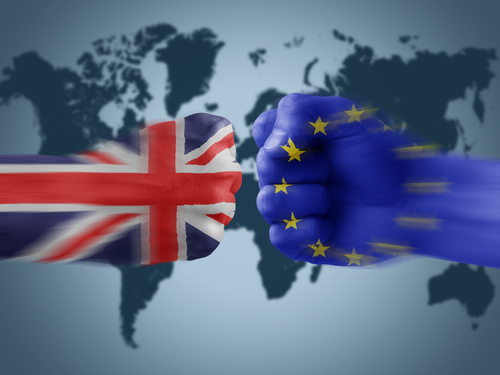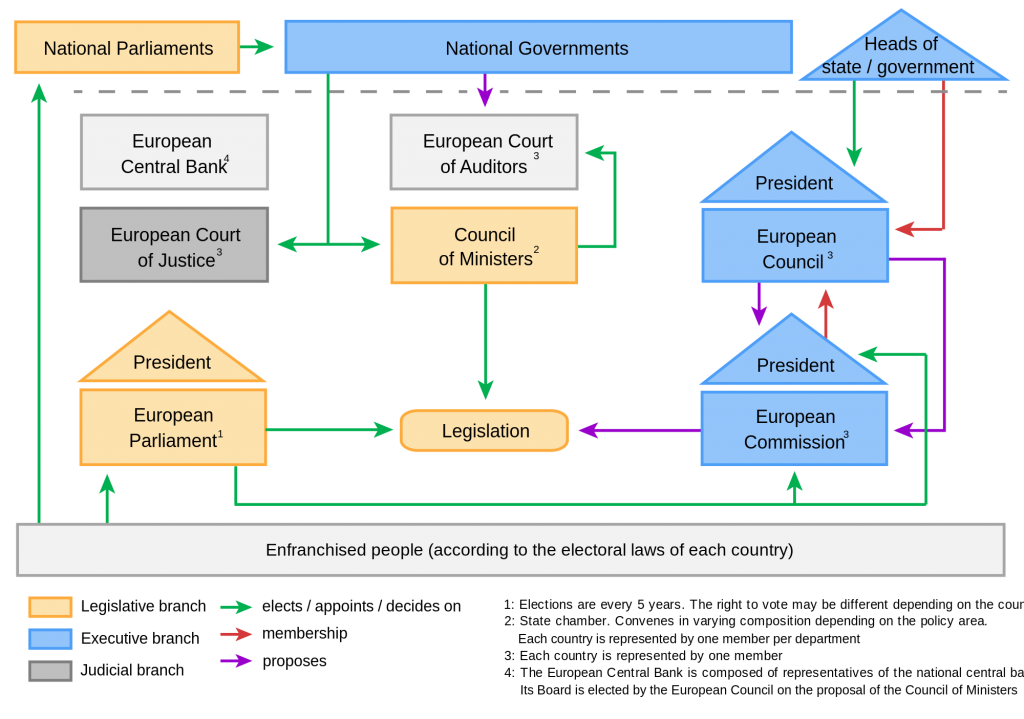What Today’s Brexit Vote Means to Investors
What the Brexit Vote Means for the European Union and the Future
Britain holds a historic vote this Thursday – June 23rd – to determine whether they will remain in or leave the European Union. The question will be determined by referendum – a yes or no question decided by popular vote. What does it mean for Great Britain, Europe, and the globe if Britain exits the EU? We will break down questions you may have about the EU, Britain’s role, the referendum, and its future implications. Let’s look into what tomorrow’s Brexit vote means to investors…
Why Does Britain Want to Leave?
 Current British Prime Minister David Cameron campaigned on the promise that he would hold the referendum if elected in 2015. His promise was in large part due to mounting pressure from Conservative Members of Parliament and the UK Independence Party (UKIP).
Current British Prime Minister David Cameron campaigned on the promise that he would hold the referendum if elected in 2015. His promise was in large part due to mounting pressure from Conservative Members of Parliament and the UK Independence Party (UKIP).
The “Leave” campaign argues that the EU has become too powerful and over-bearing and started to erode nations’ sovereignty in favor of a federal Europe. They believe it has too much control in peoples’ daily lives while operating with too much secrecy. It’s processes and institutions are unlike any other organization making it both too empowered and too distant. Many are also opposed to the influx of immigrants from other EU states that are enabled by the visa free moment, living and working rights of people across borders. The proposed “resettlement quota” proposed by the EU for Syrian refugees in each EU nation further fueled many of these sentiments.
Those arguing for a “Remain” vote see improvements to their daily lives and opportunities from EU membership. Many also like the strong commitment the EU pledges to workers’ rights and education opportunities. They also see a “Leave” vote as causing innumerable economic and logistical burdens for:
- British citizens living elsewhere in the EU who will now require visas and work permits or be forced to move back to the UK, and vice versa Europeans living in the UK
- Small businesses who avail of the single market to expand business opportunities
- Countries like Ireland whose largest trading partner is the UK
What is the Purpose of the EU?

The EU is a complex, bureaucratic organization that many people – including EU citizens – struggle to fully understand. Knowing how the EU arose and how it operates is useful in understanding both the “Leave” and “Remain” campaigns.
The European Union was founded as an economic union on the principles:
- Free Movement of goods – free trade across borders to create a single European market as if it were basically one country
- Free Movement of People – visa free travel, living, and work for all EU citizens in all EU member countries
It was based on the idea that if countries were economically dependent on one another and enjoyed this freedom of movement across borders, future conflict could be avoided. It has become an increasingly political organization as well with a foreign affairs branch and leadership having significant weight on the global diplomatic stage.
Timeline of the EU:
- Post World War II: During the economic rebuilding of war torn Europe, the European Coal and Steel Community (ECSC) is founded in 1951 with a treaty designed to keep countries from mobilizing troops against each other due to integrated dependence on one another for coal and steel.
- 1958: Creation of the European Economic Community (EEC) and European Atomic Energy Community (Euratom) by six countries – Belgium, Germany, France, Italy, Luxembourg, and the Netherlands. First step towards future EU.
- 1967: Brussels Merger Treaty streamlines organization by combining EEC, ECSC, and Euratom into one and establishes Commission and Council – replaced by Treaty of Amsterdam in 1997
- 1973: Denmark, Ireland, and United Kingdom join EU
- 1981: Greece Joins
- 1986: Spain and Portugal join
- 1989 – 1990: Collapse of the Soviet Union
- 1992: Maastricht Treaty – Establishes European Monetary Union in preparation for the euro, introduces elements of a political union (citizenship, common internal and foreign affairs policy)
- 1995: Austria, Finland, and Sweden join
- 2001: The Euro is introduced – is now used by 19 of 28 countries
- 2004: Czech Republic, Cyprus, Estonia, Hungary, Latvia, Lithuania, Malta, Poland, Slovakia, Slovenia join
- 2007: Bulgaria and Romania join
- 2013: Croatia (newest member country) joins bringing total member countries to 28
How the EU Works
The four chief institutions of the complicated structure are briefly explained in this video from BBC.
How the EU operates and legislates is far more complicated. It is the murkiness around the working process that alienates and disillusions many of its citizens.

GO: What Happens if the Referendum Passes?
- No one really knows for sure all of the implications of a “Leave” vote.
- Treaties and trade agreements would have to be re-negotiated.
- Twenty-seven countries must decide the legal procedure for numerous UK citizens settled within their borders.
- Multi-national corporations and large banking institutions would have to re-structure and sift through countless red tape.
- Both the pound sterling and euro would plunge as the single European market loses the ninth largest economy in the world from its bloc. The stock market would experience heavy losses and gold prices would lift as a safe haven investment.
STAY: Why Britain Could Vote “Remain”
- It is likely that the fear of such an unknown future might be enough to scare enough voters into wanting to remain in the EU. For many a “Leave” vote carries personal risk to their daily lives and livelihood.
- The immediate economic crisis that would occur would damage an already stagnant EU economy further in a zone where a large number of EU citizens have still not recovered from the 2008 global crisis.
- Many of the UK citizens living abroad are retired or have families and will not want to uproot their lifestyles.
- Younger voters tend to align ideologically with the EU for its political commitment to the advancement of human rights and open borders and opportunities for travel, higher education, and work opportunities in other countries.
What the Referendum Means for the Future of the EU
Whether the referendum passes or not, it presents important questions for the future of the EU. “Euroskepticism” is on the rise in many more member countries. If Britain does leave, many predict there will be a domino effect of member countries holding referenda. If it doesn’t leave, Britain’s example could still prompt other nations to hold referenda and cause exits of other nations until the organization finally unravels.
Alternately however, a British “Remain” vote could be interpreted as a vote of confidence in the EU. Regardless, the aftermath of the June 23rd referendum will be worth following and will have significant historic and economic repercussions.
